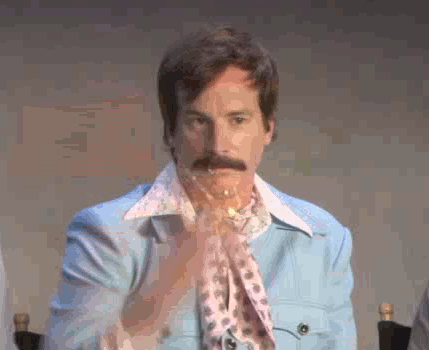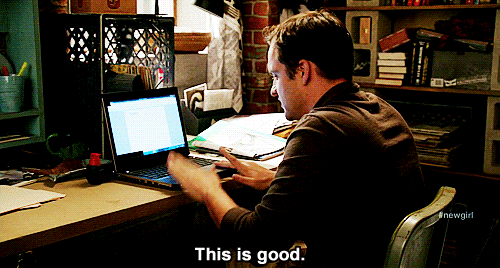Every step on the hopeful journey to publication is fraught with potential horror, but there’s something especially cringe-worthy about the querying process. It’s a different brand of ugh. I started querying literary agents in the early 2000s, and I unsuccessfully shopped a number of manuscripts.
When I was getting started, there weren’t as many query-related resources as there are today. That was before most agents started blogging. I’m not sure if AbsoluteWrite existed yet, but if it did, I certainly wasn’t aware of it or other sites like it. There was no YA Twitter where you could connect with other writers and find critique partners. I went to Barnes & Noble and found a book about querying–it was full of amazing advice like “Find unusual ways to make your letter stand out! Include little gifts with your queries! Fill the envelope with glitter!”

DON’T DO ANY OF THAT. Those aren’t exact quotes, but they’re close. I can’t imagine that I still have that book, but if I come across it, I’ll share its dreadful wisdom.
Is it any surprise that I made a lot of bad choices when it came to querying? I’m occasionally decent at it now (you can find the final version of Mammoth’s query over on Eric Smith’s blog), but that wasn’t always the case. Since I love pointing out my own inadequacies (my therapist probably just developed a sudden headache and has no idea why), I’m going to share a few of the mistakes I made in my first query letter around 2003. Don’t do these things.
The first project I queried on my own was an urban fantasy called The Shades of Shadow. Y’all. I wrote the query letter from the POV of one of the main characters. Seriously, I went all out. I designed his fancy letterhead and I bought special paper and everything. It was adorable and terrible. DO NOT DO THIS. The letter was also two full pages long–while it’s not an absolute rule, especially now that most queries are emailed, I recommend keeping them under a page. In an effective query, every word counts. You don’t want to ramble.
Let’s check out the opening paragraphs (since I’m too embarrassed to share the whole thing):
What would you do, [agent name], if a character from your favorite novel showed up one evening at your front door? My name is Aidan Brennan, and I am the sort of character who does just that. That’s also exactly what happens to Miriam McKay in THE SHADES OF SHADOW, the manuscript for which I’m seeking representation. SHADES clocks in at 308 pages and is the beginning of a series; the next two volumes are in progress.
I also happen to be a vampire, and I’m well aware that you’re rolling your eyes at my admission. It’s a mistake to pigeonhole my series as nothing more than “vampire fiction,” or even worse, horror or sci-fi. My vision for the series is far more mainstream than that – my writer and I are aiming for a new commercial realm of character-driven supernatural realism, an invasive and suspenseful remolding of the concepts of fiction and fact. After all, there’s more gray area between the two than most people are willing to admit.
Oh no. Oh Jill, you sweet summer child. At least I remembered to replace [agent name] with each agent’s actual name in the copies I mailed. Let’s break this down. In addition to writing from my character’s point of view . . .
- I used awkward clichés like “clocks in at.”
- I refused to name a genre and tried to make one up.
- I dismissed and insulted several other genres.
- I talked down to the agent (I blame Aidan for this, heh).
- I did this for TWO PAGES.
- I opened my letter with a “what would you do” question.
That last detail isn’t as cringe-worthy as the rest, but it’s been done to death and it’s rarely an effective hook. If you can’t grab an agent’s attention with your query, you’re indicating that you might have an equally hard time grabbing readers’ attention with your book.

The genre details were awkward because I demonstrated that I had no idea where my project fit into the market. Offering a few decent comps would have been way more effective than trying so hard to set myself apart.
Interestingly, the response to this letter wasn’t as negative as you might expect. My dream agent was actually really amused; she addressed her (very kind and personalized) rejection to both Aidan and me, and I got several full manuscript requests from other agents. Nothing came of those requests (because the story itself was a mess), but still.
Because of that, my last querying tip is this: Don’t stress too much about the possibility of making a querying mistake. Y’all, if I could get full requests with that query, anything is possible. Do your research, read some examples of good queries, ask a few critique partners or trusted friends to take a look at your letter, and trust in the story you’re trying to sell.


Thanks for sharing this! I love that you managed to get some full requests, even from a query that had some … flaws. 🙂
LikeLike
Right? Fifteen years later, I’m still surprised that I got any requests at all.
LikeLike